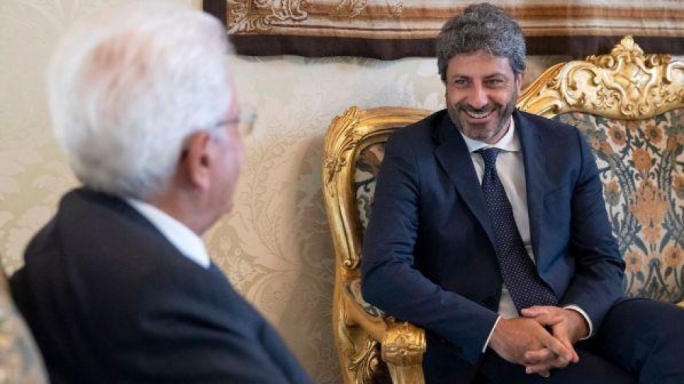Italy ‘unlikely’ to change migration policy even with new government
Economist Lawrence Zammit says coalition between Five Star Movement and Democratic Party most likely outcome for Italy

The likely outcome of Italy’s current political crisis is the formation of a new coalition government between the Five Star Movement (M5S) and the Democratic Party (PD), economist Lawrence Zammit said.
Commenting on this week’s political developments in Italy, the former Air Malta and Malta Enterprise chairman, told Business Today that there would probably not be any major changes with regards to Italian migration policy once a new government is established, although the stand-off between Matteo Salvini and humanitarian NGOs might come to a halt.
On Tuesday, Italian Prime Minister Giuseppe Conte resigned after a hard-hitting speech where he accused his deputy prime minister Salvini of putting personal interests before the country’s. This pulled the plug on the government, a coalition between the Northern League and the M5S, thrusting the country into a political limbo.
It is now up to President Sergio Mattarella to decide whether a new coalition can be formed, or whether an election has to be called. Mattarella started consultations on Wednesday with key political players, in an attempt to form a ruling coalition.
According to the Italian constitution, Mattarella has to first consult ex-presidents, with Senator Giorgio Napolitano, 94, being the only living former head of state. This discussion will be followed by talks with house speakers and the leaders of political groups.

Zammit, a MISCO founding partner, told BusinessToday that he expected an element of political manoeuvering to take place at this stage.
“I believe that there is a strong possibility that the Five Star Movement and the Democratic Party form a new government,” he said, “I also believe that the Democratic Party would accept having the outgoing Prime Minister Giuseppe Conte, as Prime Minister.”
“The issues that may arise will essentially deal with the political vision of the two partners. To what extent will the Democratic Party live with the euroscepticism of the Five Start Movement?” Zammit asked.
The crisis, which culminated this week, was triggered on 8 August by Salvini, who announced that his anti-immigration League party would be pulling out of the coalition with M5S, which lasted 14 months.
Salvini called for an election, in a bid to secure “full powers” for his party. This may prove to be a gamble for the far-rightist, however, as he may well end up in the Opposition in a parliament where the M5S hold a majority.
Short of calling an election as demanded by Salvini, President Mattarella may opt either for a short-term institutional government entrusted with approving a budget before taking the country to the polls next year or for a more durable government based on a political pact between the MS5 and the Democrats.
“It was thought that Matteo Salvini would start a triumphal electoral campaign that would eventually land him the prime Minister’s job after the next election. However, he has made a number of mistakes in the last days which must have dented his popularity,” Zammit told this newspaper.
Asked how the different possible scenarios could affect the Maltese landscape, Zammit said that the impact on Malta will depend on the policy of any incoming Italian government has towards the EU.
“If Matteo Salvini were ever to become Prime Minister, the chances are that Italy would exit the euro. The Five Star Movement have become more pragmatic towards the euro. They recognise its benefits for the Italian economy but would like to have more flexibility with regard to its fiscal policy,” he underscored.
One would also need to assess, he highlighted, whether there would be any change with regard to Italy immigration policy.
“The stand-offs that we have seen in recent days and weeks between Matteo Salvini and the [migrant rescue] NGOs may not repeat themselves. However, I doubt if Italy will change its policy to any significant extent with regard to immigration,” Zammit added.






